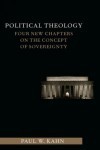
It is certainly interesting to see a reflection of myself in the response of another discipline, even if I sometimes have trouble recognizing that image. Most useful will be for me to address the meaning of the gap between the two different political theological enterprises represented in this discussion. I will begin by making clear what the idea of a political theology contributes to my project. Following that, I will defend some of the contested theoretical premises of my work. Finally, I will take up the hardest question that emerges from this discussion: is it really the case that my political theological project is non-normative? If there is an implicit normative claim in my work, then the reviewers are right to ask not just whether I have got my description of American politics right, but whether the ethical direction of my work can be supported.
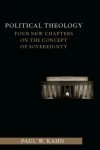
This book is a timely intervention within current debates about the role of religion, politics, philosophy and the public square. I was reading it as the Western World was once again reflecting (and in a not very coherent or analytical way) on the tenth anniversary of 9/11. As Kahn persuasively reminds us, international terrorism inextricably linked to religious imaginaries has forced liberal democracies and liberal intellectual disciplines to wake up to the real nature of politics: the themes of sovereign decision; the power of the exception rather than the bureaucratic norm; the lure of sacrifice and martyrdom; the will to act and choose authenticity rather than the use of reason or appeal to the norm. These are the seductive and destructive options that the international and religiously inspired terrorist offers us.
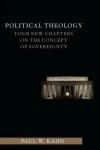
Kahn’s book is intriguing and in many places insightful, conversant in theoretical literature ranging from that of Giorgio Agamben to that of Brian Leiter. I have two worries, one about Kahn’s similarity to Schmitt and another about Kahn’s difference from Schmitt. I worry that the richness of Schmitt’s treatment of theology is diminished in Kahn’s treatment, with theology being reduced to religion – religion that sounds quite liberal and quite Protestant. And I worry that Kahn, like Schmitt, may not provide sufficient space for difference (racial, gender, class, and even religious) in his constructive account. I will approach these worries indirectly, after first rehearsing some of Kahn’s discussion of sovereignty.
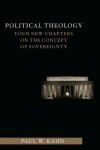
In the October 13 issue of the New York Review of Books, Mark Danner published a critique of the Bush administration’s policy on torture, under the title “Our State of Exception”. He didn’t give Carl Schmitt (or Paul Kahn) credit, but he could have. When the intellectual history of the past generation is written, one of the stranger items will be the unexpected resurrection of a sinister figure who might have seemed buried and forgotten, except for his admirers on the far right wing of respectable discourse.
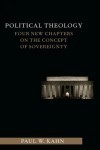
At this moment of extreme political intensity, Paul W. Kahn’s new book, Political Theology, appears as a timely meditation. By means of a sustained engagement with the controversial German legal theorist Carl Schmitt’s text of the same name, Kahn attempts to demonstrate that behind our seemingly liberal, constitutional order is a deep faith in the sacred character the state and of popular sovereignty. One is tempted to read Kahn’s juxtaposition of the discourses of (liberal) political theory and political theology as a commentary on struggle between the Obama Administration and the contemporary Republican (and Tea) Party—the one stressing reason, deliberation, pragmatism, compromise; the other embracing faith, will, power, sacrifice. Kahn, however, is more subtle than that. His slim volume is a provocative, sometimes frustrating, sometimes perplexing read, providing much food for thought, and also, I can imagine, for fights.
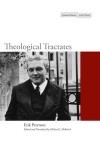
“Political theology” as discourse came back into circulation almost a hundred years ago thanks to the efforts of Carl Schmitt. In Germany, at least, its feasibility as a theological category was promptly booted out of play by his close friend Erik Peterson (d. 1960) in an oft-cited – but less often read – monograph on “Monotheism as a Political Problem” (1935). That and other writings of Peterson’s are now available in English translation, most of them for the first time, in my edition of Theological Tractates (Stanford University Press, 2011). Peterson reveals himself to have been an “anti-political” theologian who yet possessed an acute sense of the political dimension of subjects as diverse as liturgy, mysticism, ecclesiology, and martyrdom.